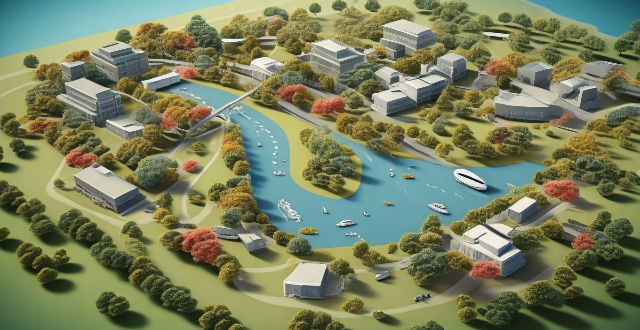Education is crucial for raising environmental awareness among future generations, as it enhances knowledge, develops values, and promotes action. Incorporating environmental education into the curriculum empowers students with the necessary tools to understand and address complex challenges facing our planet. By fostering a deeper appreciation for nature and cultivating a sense of responsibility towards preserving it, schools can play a significant role in nurturing eco-conscious citizens who are well-equipped to confront and overcome environmental challenges.

How Does Education Contribute to Raising Environmental Awareness Among Future Generations?
Education plays a pivotal role in shaping the attitudes, knowledge, and behaviors of future generations towards environmental issues. By incorporating environmental education into the curriculum, schools can empower students with the necessary tools to understand and address the complex challenges facing our planet. This comprehensive approach not only fosters a deeper appreciation for nature but also cultivates a sense of responsibility towards preserving it for future generations.
Enhancing Environmental Knowledge
Promoting Scientific Understanding
- Scientific Literacy: Educating students about basic scientific concepts related to ecology, biology, and Earth systems helps them grasp the interconnectedness of natural processes.
- Cause and Effect: Understanding the cause-and-effect relationships between human activities and environmental impacts is crucial for developing informed decision-making skills.
Increasing Awareness of Environmental Issues
- Global Challenges: Introducing students to global environmental issues such as climate change, deforestation, and pollution raises their awareness and encourages them to think critically about these problems.
- Local Impacts: Discussing local environmental issues allows students to see how their actions directly affect their community and encourages them to take action.
Developing Environmental Values
Fostering Stewardship
- Responsibility: Teaching students about their role as stewards of the environment instills a sense of personal responsibility for its protection.
- Sustainability: Emphasizing sustainable practices promotes an understanding of the importance of balancing human needs with ecological integrity.
Cultivating Respect for Nature
- Appreciation: Encouraging outdoor experiences and hands-on learning helps students appreciate the beauty and value of natural environments.
- Biodiversity: Educating students about the diversity of life on Earth and its inherent worth fosters respect for all forms of life.
Promoting Environmental Action
Skill Development
- Critical Thinking: Encouraging critical thinking skills enables students to analyze environmental problems and propose innovative solutions.
- Problem-Solving: Providing opportunities for problem-solving through projects or simulations prepares students to tackle real-world environmental challenges.
Encouraging Participation
- Community Engagement: Involving students in community clean-up efforts or tree planting initiatives turns their awareness into tangible actions that benefit the environment.
- Advocacy: Educating students about how they can influence policy decisions through voting, writing letters, or participating in protests empowers them to become advocates for environmental causes.
Conclusion
Education is a powerful tool for raising environmental awareness among future generations. By enhancing knowledge, developing values, and promoting action, educational institutions can play a significant role in nurturing eco-conscious citizens who are well-equipped to confront and overcome the environmental challenges of our time. As Mahatma Gandhi wisely stated, "Education is the most powerful weapon which you can use to change the world." In the context of environmental conservation, this rings particularly true, as an educated populace is more likely to make informed choices that contribute to a sustainable future.